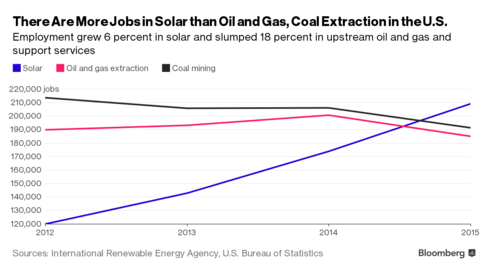GA Solar Open Letter to Senators Isakson and Perdue
Suniva / Solarworld 201 Case


 With Georgia’s solar market ranked 4th in the U.S. and job growth up 23% in 2016, solar is on the move in Georgia. Now a new solar bill (HB 431) aims to remove barriers to rooftop solar, protect consumers, and unlock the free-market potential of solar promising continued growth for years to come.
With Georgia’s solar market ranked 4th in the U.S. and job growth up 23% in 2016, solar is on the move in Georgia. Now a new solar bill (HB 431) aims to remove barriers to rooftop solar, protect consumers, and unlock the free-market potential of solar promising continued growth for years to come.
GaSEIA is pleased Representative Buzz Brockway introduced HB 431, which ensures customers’ right to manage their electric bills with onsite solar and ensure that solar customers are not subject to extreme and unjustifiable costs.
HB 431 will improve the outlook for distributed generation (rooftop) solar, create thousands of jobs, protect consumers, promote economic development, and increase Georgia's energy security.
HB 431 makes commercial system size limits more reasonable in light of economic and technological changes since the Co- Gen Act was passed in 2001.
Importantly, the legislation does not preclude utility fees but provides that customers have notice before fees are imposed and that such fees are not just and reasonable. This is important because customers need more transparency to make informed decisions about whether or not to install solar.
This legislation follows a special subcommittee hearing and report of the House Energy Committee in the fall of 2016.
The Georgia Solar Energy Association awarded its 2016 Solar Advocate Award to Shan Arora, program manager for Southface, at its annual holiday celebration on Thursday, December 15.
Arora created and manages georgiaenergydata.org, an interactive map and database that provide both aggregate and detailed information on Georgia’s growing solar portfolio. He also conducts and analyzes the annual Clean Jobs Census that shows the growth and economic contribution of Georgia’s solar industry.
In a video debuted as part of the awards presentation, https://www.youtube.com/watch?v=R7SepJOKpbw, Georgia PSC Commissioner Tim Echols praised Arora for giving policymakers reliable information on the positive impact of policy decisions that encourage solar investment throughout the state.
|
Dear Friend of Solar,
President-elect Donald Trump's victory in the November 8 election was a sobering event for all of us in the solar industry. During the campaign, Trump repeatedly expressed his disdain for renewable energy and solar in particular. He has persistently promised to increase government support for coal and other fossil fuels and eliminate programs that encourage solar adoption. Like you, I am disappointed in the incoming president's uninformed dismissal of solar's potential. This consciously denigrates the significant solar investments worldwide and the solar industry's 200,000+ American workers, more than all fossil fuel extraction combined.
 Clearly, an enormous challenge awaits our industry over the next four years as we work to hold onto our recent gains and find new opportunities for growth. The new president will have a Republican majority in both houses of Congress. This gives him almost unlimited opportunity to enact the policies that reflect his views and repeal those that don't. Among other things, the recent extension of the ITC may be affected.
But all is not lost.
Florida's deceptively worded Amendment #1, which would have allowed that state's utilities to impose punitive charges on solar customers, was defeated. That vote underscores the ongoing popular support solar enjoys across political lines. Here in Georgia, we are lucky to have our solar-friendly Public Service Commission, especially Republican Commissioner Bubba McDonald. The PSC's work and support has created a robust solar market in Georgia without mandates or incentives at the state level.
This point is very important, because the authority to determine energy policy lies primarily with state government. Our Republican majority legislators have demonstrated that they are open to commonsense solar-friendly policies. They understand a robust solar market helps create good jobs and long-term investment with no upward pressure on utility rates.
In the current political environment, however, educating elected officials and the public about the economic and environmental benefits of solar has never been more critical. And that is what GA Solar does best, in cooperation with a wide range of stakeholders. We communicate most effectively when we speak together.
Market fundamentals are strong for solar. Here are the facts that will continue to keep our solar market thriving:
This is the biggest opportunity for innovation in generations. Georgia can become a leader in the emerging solar market, creating thousands of jobs and lucrative economic investments that will benefit communities statewide for decades.
Your continued support for GA Solar is essential to this mission. We are feeling especially grateful at this moment for the support we have had in these years of enormous progress. We hope you will continue your contribution to enable us to meet the challenges ahead.
Let's join hands with all our solar allies and stakeholders, including consumers, environmentalists and trade organizations, to focus our efforts on tangible goals such as getting a fair value for solar (known as the Renewable Cost Benefit framework (RCB) currently before the PSC) and eliminating barriers to intended use of HB 57 contained in the Co-Gen Act. And, let us hear from you on what you think we can do to keep solar strong in Georgia.
|